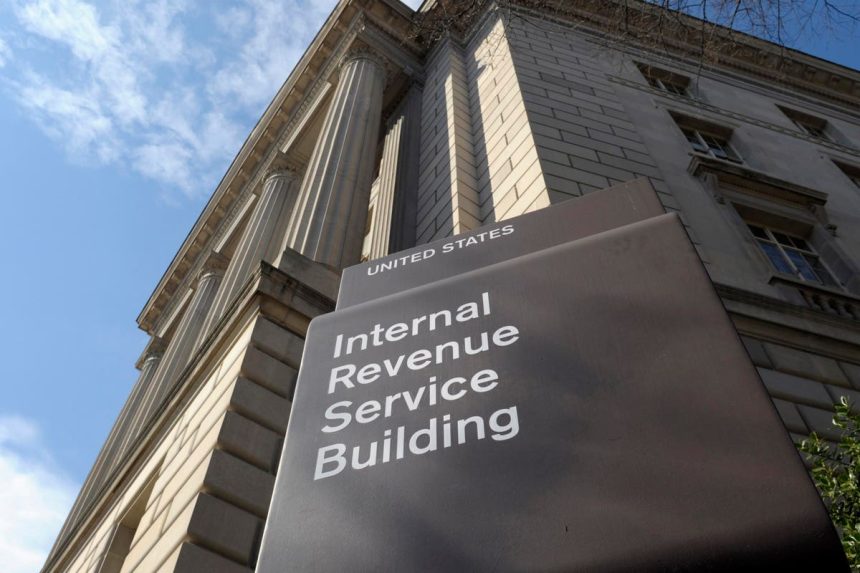(Note: This story was updated on June 26, 2023, with a correction.)
IRS funding is back in the news.
Less than a month after a debt ceiling agreement that would claw back some of the IRS funding previously authorized by the Inflation Reduction Act of 2022 (IRA), a bill is back in the House to reduce the agency’s funding even more. The bill would also impose various restrictions on the use of IRS money, including a bar on developing a system—now being worked on by the IRS—that would allow taxpayers to file their returns for free, directly with the government.
The House Appropriations Committee released the Fiscal Year 2024 bill for the Financial Services and General Government Subcommittee earlier this week. The House Appropriations Financial Services and General Government Subcommittee marked up the bill on Thursday (it was live-streamed, and you can watch the video here).
Spending
The Financial Services and General Government bill provides $25.3 billion in non-defense discretionary spending and $45 million in discretionary defense spending for programs under the jurisdiction of the Subcommittee. According to the Committee, the total spending level is $6.232 billion (19.75%) below the President’s Budget Request, $1.867 billion (7.0%) below the FY23 enacted level, and $581.9 million (2.25%) below the FY22 enacted level.
You can read the President’s Budget Request here.
Impact On IRS
On the financial side, proposed cuts under the bill would include $10.2 billion of the IRS’ enforcement and operations support funding. The IRS would receive $11.2 billion for fiscal 2024 —shaving $1.1 billion off the fiscal year 2023 enacted level. Here’s how that compares to prior years.
If those numbers look a little higher than expected for the previous year, according to the IRS data book, IRS’s actual expenditures were almost $14.3 billion for overall operations in the 2022 fiscal year, including supplemental funding to support the IRS’s COVID-19 pandemic-related activities.
The bill would provide $4.2 billion for enforcement—a $1.2 billion cut from $5.4 billion in 2022; $2.8 billion for taxpayer services—down from $3.3 billion in 2022; $4.1 billion for operations support—down $5.1 million from 2022; and $150 million for business systems modernization. (The 2022 fiscal year figures are pulled from the IRS Data Book.)
This would be in addition to the $1.4 billion clawed back under the debt ceiling agreement and a side agreement that would cut $20 billion in IRS funding in fiscal years 2024 and 2025.
Conditions
The money also comes with conditions. Some of the provisions that would require the IRS to:
- Create and maintain an employee training program focused on taxpayers’ rights, dealing courteously with taxpayers, cross-cultural relations, ethics, and the impartial application of tax law;
- Institute and enforce policies and procedures to safeguard the confidentiality of taxpayer information and protect taxpayers against identity theft; and
- Use funding to “provide sufficient and effective 1–800 help line service for taxpayers,” and allocate resources necessary to enhance the response time to taxpayer communications, particularly concerning victims of tax-related crimes.
There’s also an awkwardly worded directive to “Issue a notice of confirmation of any address change relating to an employer making employment tax payments, and such notice shall be sent to both the employer’s former and new address and an officer or employee of the Internal Revenue Service shall give special consideration to an offer-in-compromise from a taxpayer who has been the victim of fraud by a third party payroll tax preparer.” That’s not an error or wacky pagination. Section 104 of the bill really does push together specific employment tax payment address change language with what feels like a toss-in request related to offers in compromise.
The bill also mandates that none of the funds can be used:
- To target citizens of the United States for exercising any right guaranteed under the First Amendment to the Constitution of the United States;
- To target groups for regulatory scrutiny based on their ideological beliefs;
- On conferences that do not adhere to the procedures, verification processes, documentation requirements, and policies issued by the Chief Financial Officer, Human Capital Office, and Agency-Wide Shared Services as a result of the recommendations in the report published on May 31, 2013, by the Treasury Inspector General for Tax Administration entitled “Review of the August 2010 Small Business/Self-Employed Division’s Conference in Anaheim, California” (that language is taken directly from the bill);
- To pay any employee under a bonus, award, or recognition program or any hiring or personnel selection process related to rehiring a former employee unless such a program or process considers their conduct and federal tax compliance; or
- In contravention of section 6103 of the Tax Code relating to confidentiality and disclosure of returns and return information
IRS Commissioner
Funding is also earmarked to provide transportation and protection between the IRS Commissioner’s residence and place of employment. That comes at an interesting time: safety concerns for government workers are increasing, not decreasing.
Last year, the IRS reported an increasing number of threats, largely tied to conspiracy theories about enforcement. At the time, Tony Reardon, president of the National Treasury Employees Union, the labor union representing 150,000 employees of 31 departments and agencies of the federal government, including the IRS, said that members had been vocal about their fears and worries about their safety.
And this isn’t happening in a vacuum: there are clearly concerns about security for high-profile members of government. In 2022, Congress passed a bill providing round-the-clock police protection for Supreme Court justices and their families.
E-File Systems
The bill would also bar the IRS from using funding to develop or provide a free direct-file tax return system without the prior approval of the Committees on Appropriations of the House and the Senate, House Ways and Means Committee, and Senate Finance Committee.
As noted in the IRS’ Strategic Operating Plan, Congress had previously directed the IRS to study “the feasibility of an IRS-run free direct e-file tax return system (Direct File).” The IRS had hoped to introduce some variation on the project in the 2024 filing season. According to a survey conducted in conjunction with the plan, a significant majority (72%) of taxpayers are either “very interested” or “somewhat interested” in this option. And among taxpayers who currently self-prepare their taxes using commercial software, 68% reported being either “very likely” or “somewhat likely” to switch to a free IRS-provided online tool.
Reactions
Many of the provisions of what is intended to be an appropriations bill appear puzzling. However, they likely won’t make it to a final vote. Sen. Chris Van Hollen (D-MD), chair of the Senate Appropriations Financial Services and General Government Subcommittee, appeared to address the bill on social media, tweeting out that “MAGA
MAGA
The IRS did not immediately respond to a request for comment.
You can read the markup of the bill here.
(An earlier version of this story misstated the provision related to the Commissioner. That has been corrected.)
Read the full article here










